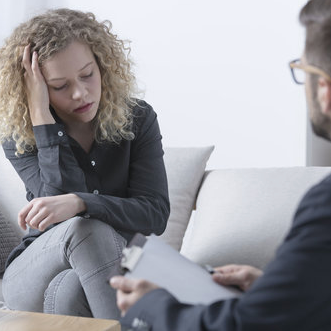What you need to know about Psychotherapy
Contents
Psychotherapy, also known as psychosocial therapy, counseling, or therapy, is a general term that refers to a range of treatment techniques that can help people with mental health issues, some psychiatric disorders, emotional challenges,. It is sometimes called a “talking treatment” because it involves talking with a psychiatrist, psychologist, or other licensed mental health provider who can help identify and work through the factors that may be triggering the condition. It can also help you to learn ways to take control of your life and react to situations that are challenging with improved coping and problem-solving skills.

What does the Procedure Involve?
In your first psychotherapy session, your therapist will gather the necessary information about you and your needs. You may need to fill out forms about your current and past physical and emotional health. A few sessions may be needed until your therapist fully understands your concerns and situation, and to determine the best types and approaches for your particular case. Some types of psychotherapy that are proven to be effective include:
-
Psychodynamic and psychoanalysis therapies – these therapies are used to increase your awareness of unconscious behaviors and thoughts. It is also used to develop new insights into your motivation and resolve conflicts.
-
Cognitive-behavioral therapy (CBT) – CBT can help you recognize and change poor perceptions that you may have of yourself and the world around you. During this therapy, your therapist will help you replace your unhealthy and negative beliefs/behaviors with healthy ones.
-
Dialectical behavior therapy (DBT) – is a type of CBT where you learn behavioral skills that can help you manage your emotions and handle stress. It is also used to create an improvement in your relationships with other people.
-
Intrapersonal psychotherapy – this type of therapy focuses on addressing your behaviors and interactions you have with family and friends. The aim of this therapy is to improve your interpersonal skills.
-
Acceptance and commitment therapy – this therapy can help you become aware of and accept your thoughts and feelings. It is also used to increase your ability to adjust to and cope with situations.
-
Supportive psychotherapy – your ability to cope with difficult situations and stress is reinforced in this therapy.
During all types of psychotherapy, your therapist will encourage you to talk about your feelings and thoughts that are troubling you. You may find it hard to open up, but your therapist will help you gain more confidence and comfort over time. You may also find yourself upset, crying, or even having an angry outburst during a session. Your therapist will help you cope with such emotions and feelings.
Besides the different types, psychotherapy can be given in a variety of formats as well, including individually, in a group, with family, or for couples.
How Long Should I Stay in the Area?
The number of psychotherapy sessions you need and how frequently you need to see your therapist depends on your specific condition. Some forms of psychotherapy may last only a few seasons, while others can last for months and years. Sessions are usually held once a week. You can choose to stay in the area until you complete all of your sessions or travel for each of your sessions. Your medical team and/or medical travel team will be able to advise you on this.
What’s the Recovery Time?
There is no recovery time after psychotherapy. You can do your normal routine and work even during your treatment. However, if you feel exhausted after your sessions, it is advisable that you take the day off.
What About Aftercare?
After your therapy session, provide some time and space to collect your thoughts and feelings. You can do this by listening to soothing music. Your therapist may recommend you to engage in physical activities, such as going on a short walk, perform light stretching, or do yoga.
After your treatment has completed, your therapist may give you aftercare instructions that are specifically designed for your individual case. The aftercare is usually aimed to prevent relapse.
What’s the Success Rate?
Research shows that psychotherapy is effective in relieving symptoms and allows patients to function better in their life. Around 75% of people who had psychotherapy show some benefit from it.
There is generally very little risk in psychotherapy. However, since it usually involves exploring painful experiences and feelings, you may feel emotionally uncomfortable.
Are there Alternatives to Psychotherapy?
There are several alternatives to psychotherapy that your mental health provider may recommend, such as:
-
Eye Movement Desensitization and Reprocessing (EDMR) – this is a fairly new type of therapy in which your therapist focuses on stimulating your eyes by moving their finger back and forth or with swinging pendulums.
-
Dance movement therapy – this therapy involves expressing yourself through movement. The programs range from traditional dances, such as ballroom, to more subtle forms of movement, such as yoga.
What Should You Expect Before and After the Procedure
Before psychotherapy, you may experience symptoms of or have a mental health condition, such as anxiety, overwhelming feelings of sadness, and an inability to cope with your problems. After the therapy, you may have the power to cope in a healthy way and feel better about yourself and your life.
For an in-depth analysis of a Psychotherapy Procedure, watch this short video.
To check prices or to book a Psychotherapy Procedure, in Thailand or anywhere else in the world, head on over to MyMediTravel now!

